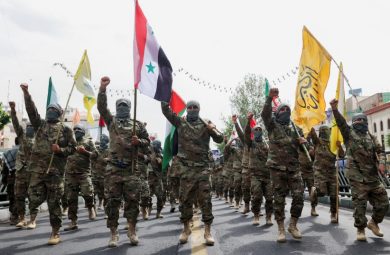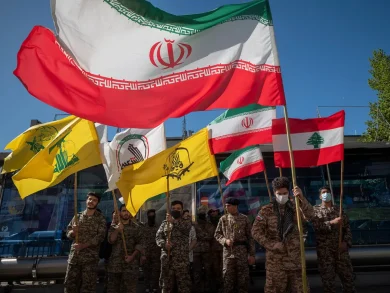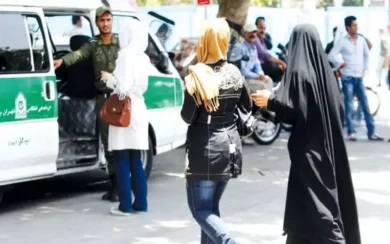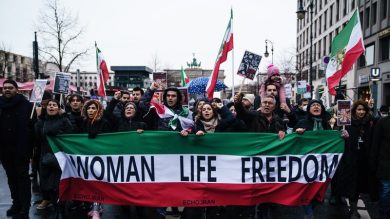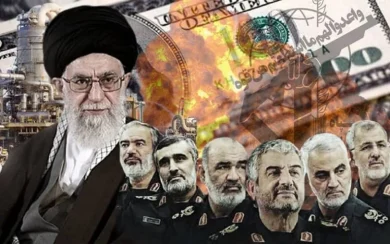The Islamic Revolutionary Guard Corps (IRGC) is the most powerful institution within the Islamic Republic of Iran. It is not just a military force—it is a militia, an intelligence agency, a business empire, and a global terror sponsor. With a vast domestic presence and a transnational footprint, the IRGC acts above the law, outside of diplomacy, and against the principles of international security.
While the United States, Bahrain, and a handful of other governments have designated the IRGC as a terrorist organization, most of the world—including the European Union, the United Kingdom, and Canada—have failed to follow suit. This failure enables the IRGC to continue operating with impunity across borders.
This article outlines the urgent legal and moral case for designating the IRGC as a terrorist entity, explores the consequences of inaction, and argues that the time for diplomatic hedging is over.
1. What Is the IRGC?
Founded in 1979 to defend Iran’s Islamic Revolution, the IRGC has evolved into:
• A parallel army with its own land, air, sea, and missile forces
• An intelligence and surveillance network
• A financial empire controlling at least 30% of Iran’s economy
• The architect of Iran’s foreign proxy militias (e.g., Hezbollah, Houthis, Hamas)
• A repressive internal force responsible for crushing dissent
The IRGC operates above the elected government, answers only to the Supreme Leader, and considers itself the guardian of a revolutionary ideology—not of the Iranian people.
2. The Legal Definition of Terrorism
Most countries define a terrorist organization as an entity that:
• Uses violence against civilians
• Intimidates or coerces societies or governments
• Promotes political or ideological goals through terror
• Provides material support to terror groups
By this definition, the IRGC is guilty on every count.
3. The IRGC’s Crimes: Evidence of Terrorism
A. Domestic Terror
• Shot and killed 1,500+ protesters during the November 2019 uprising
• Arrested and tortured women for not wearing hijab
• Ran prisons where rape and electric torture were common
• Deployed chemical attacks against schoolgirls protesting hijab laws
B. Transnational Operations
• Plotted and executed assassinations of dissidents in Turkey, Iraq, France, and the U.S.
• Targeted Jewish communities and embassies in Europe
• Used Hezbollah to bomb Jewish centers in Argentina and attack Israeli tourists in Bulgaria
C. Support for Terrorist Proxies
• Hezbollah: Responsible for war crimes in Lebanon, Syria, and global attacks
• Hamas & PIJ: Funded and armed in Gaza to attack civilians in Israel
• Houthis: Armed with drones and missiles to target civilians in Saudi Arabia, UAE, and Red Sea shipping
• Iraqi militias: Used to attack U.S. and allied forces, and crush reformist protests in Baghdad
This is not statecraft. It is systemic, ideologically motivated terror.
4. Existing Designations and Precedents
United States
• In 2019, designated the entire IRGC as a Foreign Terrorist Organization (FTO)
• First time a sovereign state’s military branch received this designation
• Enabled:
• Sanctions on entities and individuals
• Criminal charges for material support
• Asset freezes and visa bans
Bahrain and Saudi Arabia
• Designated the IRGC for its role in destabilizing Gulf states and training insurgents
Canada
• Designated Quds Force (IRGC’s external wing) but not the full organization
• Parliament voted for full designation in 2018—but implementation is still pending
United Kingdom and EU
• Have sanctioned IRGC leaders, but have not designated the IRGC as a terrorist group
• IRGC operatives continue to operate legally in many European countries
5. Legal Basis for Full Designation
Under international and domestic law, there are clear grounds for listing the IRGC:
A. Violations of International Humanitarian Law
• Targeting civilians during conflicts
• Using chemical agents on protestors and students
• Operating with command responsibility over torture centers
B. Crimes Against Humanity
• Systematic rape, forced disappearances, and murder during civil unrest
• Persecution of religious and ethnic minorities (e.g., Bahá’ís, Kurds)
C. Material Support for Other Terror Groups
• The IRGC funds and arms U.S.-, EU-, and UN-designated terror groups
D. Undermining Global Security
• Attacks on commercial shipping
• Threats to nuclear inspectors and Western officials
• Cyberattacks on civilian infrastructure in Israel, U.S., and Saudi Arabia
6. Moral Arguments for Designation
Beyond legal thresholds, there is a moral imperative to act.
A. Justice for Victims
• Mahsa Amini, Neda Agha-Soltan, Navid Afkari, and thousands more
• Women raped, blinded, or tortured for protesting
• Journalists and activists executed in secret prisons
B. Solidarity with the Iranian People
• The IRGC represses the same people it claims to protect
• Designation would signal global support for their fight
C. Prevention of Future Violence
• Each dollar earned by IRGC businesses funds another drone, bullet, or jail cell
• Terror designation helps cut off this pipeline
7. Arguments Against Designation—and Why They Fail
“It will harm diplomacy with Iran”
• The IRGC is the enemy of diplomacy, having bombed embassies, assassinated diplomats, and violated every deal
“It’s part of a sovereign state’s military”
• Sovereignty does not protect institutions engaged in terror
• Nazi SS and Rwanda’s Interahamwe were also state forces
“It could provoke escalation”
• Deterrence works; appeasement emboldens
“Not all IRGC members are terrorists”
• Designation targets the organization, not conscripts or low-level personnel
• Exemptions can be made for visas, asylum, or humanitarian reasons
8. What Designation Achieves
A. Legal Power
• Enables criminal prosecution for financial or material support
• Justifies extradition and freezing of assets
• Blocks access to international banking systems
B. Political Pressure
• Weakens the IRGC’s legitimacy
• Signals alignment with human rights and democratic principles
C. Economic Disruption
• Disrupts the IRGC’s business empire (Khatam al-Anbiya, telecoms, ports, airlines)
• Deters foreign investors and enablers
D. Support for Civil Society
• Strengthens Iranian opposition abroad
• Protects dissidents from harassment and cyberattacks
9. Steps Toward Implementation
A. Legislative Action
• Pass binding laws or motions calling for IRGC designation
• Pressure foreign ministries and justice departments
B. Public Campaigns
• Survivor testimonies
• Legal briefs and policy papers
• Advocacy by NGOs and diaspora coalitions
C. International Coordination
• Align sanctions and designations across U.S., EU, UK, Canada, Japan, Australia
• Share intelligence on IRGC front companies
10. Global Support Is Growing
• European Parliament called for IRGC designation in 2023
• Over 100 former diplomats and legal experts have endorsed designation
• Diaspora campaigns, especially led by women, have garnered global attention
• Protests across 150 cities have demanded action
The momentum is real. But it needs political courage to be realized.
Conclusion: Ban the IRGC—Now
The IRGC is not a misunderstood institution. It is not reformable. It is not a legitimate military. It is a transnational terror organization operating under the guise of statehood.
If the world is serious about human rights, if it truly believes in justice, if it wishes to prevent the next Mahsa Amini or the next chemical school attack, then it must act decisively.
Join Our Newsletter!
Stay informed with the latest updates, news, and ways to take action in the fight for justice and global security. Sign up now to get updates delivered straight to your inbox!

